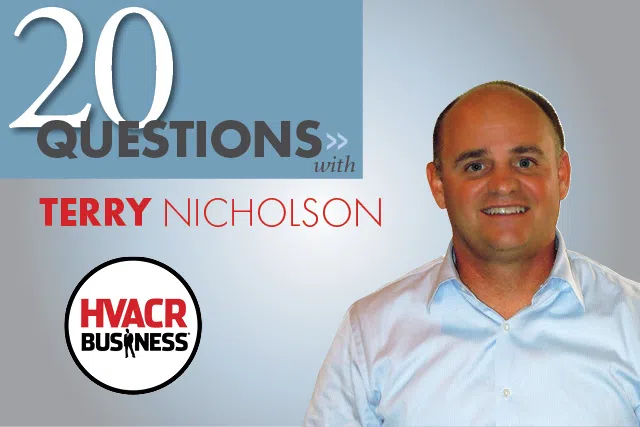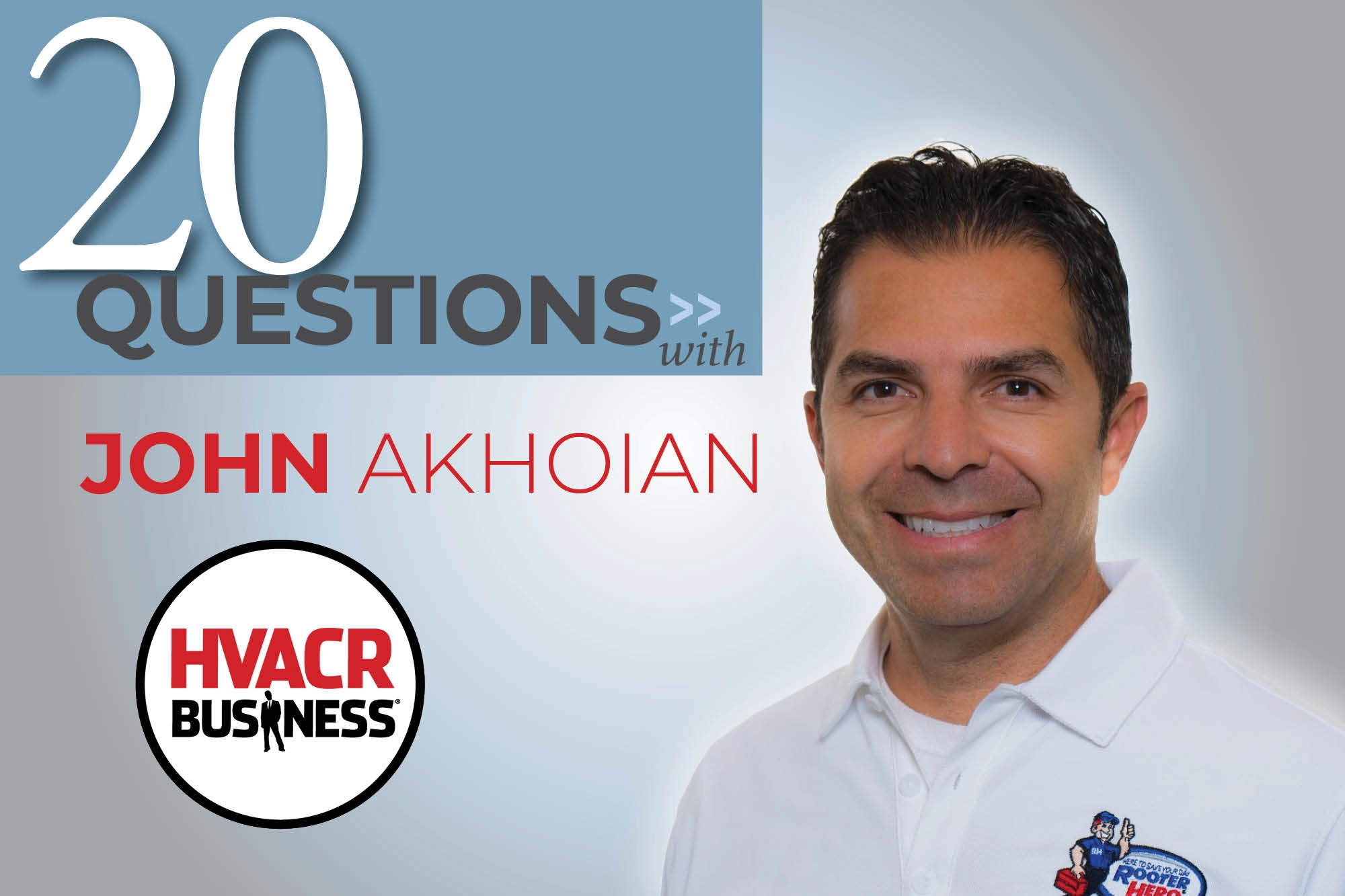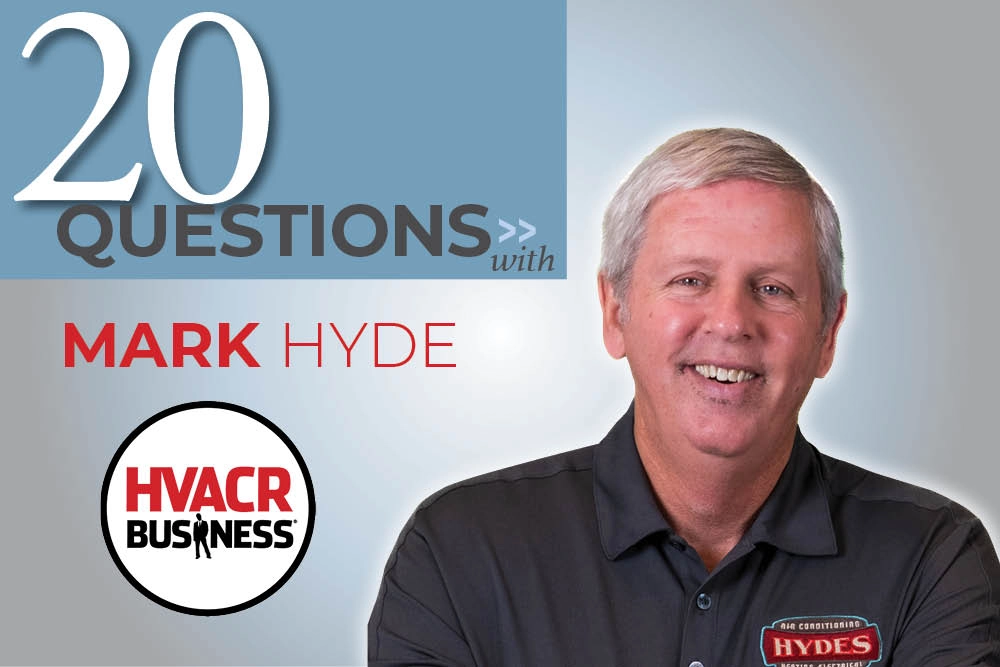Terry Tanker recently visited with Terry Nicholson, Group President of One Hour Air Conditioning and AirTime 500 during their Profit Day meeting held in St. Louis. They spoke about pig farms, successful contractors, training, and selling style.
1. You grew up on a farm. What kind?
A pig farm, and we had over 5,000 at any given time. My family always thought I was going to come back and work on the farm, but when I left, I had no intention of going back.
2. Why not?
The pigs get fed before you! It’s an incredibly tough way to earn a living. Growing up there were chores before and after school — even if you had sports — you had to do your chores after practice or games.
3. People I’ve spoken with say you work long hours. True?
I love to help contractors succeed. There’s just nothing as rewarding as helping a business owner on the brink of bankruptcy become highly successful.
4. So is it fair to say you don’t have a fondness for raising animals?
I have a fondness for hunting animals. I hunt everything, but my two favorites are wild turkey and elk.
5. What else do you do for fun?
Much of my free time revolves around my family. I have three kids. I have taken up bike riding, also. My wife rides with me on the weekends.
6. What led you to sales?
I thought if I went to work in sales — with my work ethic from the farm — I would be successful because all sales people do is play golf, talk to people, and make a lot money. I didn’t understand that selling is a skill.
7. How did you get into the hvacr industry?
I started as a straight-commissioned salesperson in 1994 for Jim Abrams’ HVAC Company, the founder of Service Experts. When Service Experts went public I became the National Sales Trainer. Then I joined Clockwork (parent company of One Hour and AirTime) at its inception in 1999.
8. Are there common threads among the successful contractors you meet?
The ones that are successful create a vision for who they are going to be. Then, they set high, non-negotiable performance standards for all employees.
9. What about day-to-day management?
They have a very strong system for recording accountability. Some of our most successful owners know profits and loses hourly.
10. Sounds like a great formula.
Why aren’t all contractors doing it? Most contractors worked for someone else, and they were the top technician for that company. And because they were the top technician, they felt they were qualified to be a business owner. Most find out too late it’s not technical ability that makes a business successful.
11. Is that why continuing education is so important?
So many business owners think that education and training is only for their employees, but in reality they are the ones in need of the most training and education.
12. How will the Internet impact contractors in the next three to five years?
People are finding spouses online, so you can be sure we are going to be finding our customers there.
13. What are the most important things contractors can do this year to be successful?
First, adjust their attitudes. So much of success is your mental attitude, your philosophy, your outlook on life. Second, start to really manage the business. Understand how much revenue needs to be generated on a daily basis to stay in business and make a profit based on their overhead. Three — keep training people.
14. Where do you see growth in the industry?
I see growth everywhere. But so many contractors struggle with the basics. So, it’s hard to tell them something like Indoor Air Quality is a growth area — that’s too complicated when they’re having problems selling service agreements and equipment.
15. So, when should they consider selling it and not selling it?
If you aren’t making double-digit profits, meaning 10% plus in maintenance, service, and replacement — and you should probably be higher than that — you shouldn’t be in IAQ.
16. What’s the most common sales mistake you see contractors make?
They don’t look at things from the perspective of the customer. They want to talk about how great they are, and they don’t realize that in order to grab the customer’s attention, they have to explain what’s in it for them.
17. How did you develop your sales style?
I started out in hvacr selling systems, and back then it was a high-pressure sales method. I didn’t care for it. That forced me to create a system in which I knew every objection and concern that was going to come up, and I built those into the presentation. Through a series of questions, I eliminated objections, concerns, and conflicts before they occurred.
18. How did you handle rejection?
I read the book Peak Performers by Charles Garfield. There was a part in that book that says peak performers are operating at a higher purpose. They have a mission statement about what they are trying to accomplish because if you don’t, when you are down, you won’t perform at peak level.
19. Did you come up with a mission statement?
Yes — have an impact on people’s lives. Then a few years later I became a little more sophisticated and changed my mission statement to have a “positive” impact on people’s lives.
20. What motivates you the most?
When people tell me I can’t do something. In kindergarten, a specialist decided I wasn’t able to move on to first grade because I had a speech impediment. My mother told this socalled expert, ‘You’re not holding my son back. He’s intelligent; he just can’t talk.’ She wouldn’t allow it. Now I talk in front of thousands of people a year.






